Community Climate Action Programme
The application window for the Community Climate Action Programme is now closed. Successful projects will be notified in April 2026.
What is the Community Climate Action Programme all about?
Does your group or organisation have high energy bills or are you are losing all your heat during winter, impacting on what you do? Are you sick and tired of using oil or gas, given their harmful impact on our climate? Do you have a transport issue you want to fix, or do you want to move away from journeys made by petrol or diesel vehicle? Maybe you are tired of food waste, or maybe you want to show that more food can be grown locally. Perhaps you would like to minimise the waste you produce, or deal with it in a better way. Maybe you want to see more green areas around you, absorbing carbon, thriving with biodiversity, and helping us adapt to the impacts of climate change. Or maybe you have an innovative solution to the climate crisis.
The Community Climate Action Programme seeks to shape and build low carbon communities in South Dublin. With funding from the Department of Climate, Energy and the Environment, the programme is supporting community organisations in South Dublin to take meaningful climate action that has real impact.
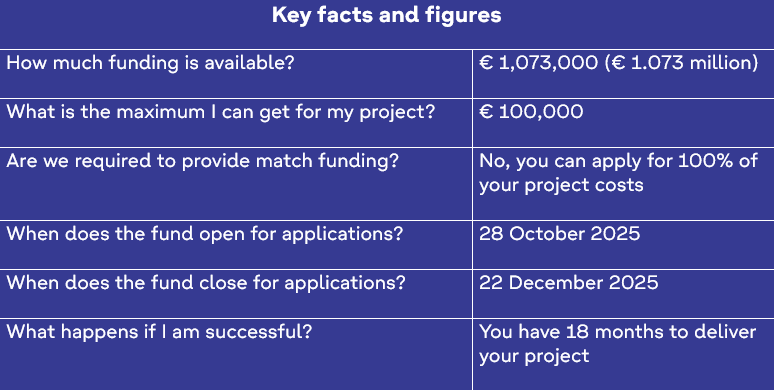
Am I eligible?
- You must be a not-for-profit organisation.
- You must be located in the operational area of South Dublin County Council.
- You must be registered with the Public Participation Network (PPN) or connected with other collectives such as the Wheel, Tidy Towns, and/or a community group with Articles of Association or a Constitution, which hold an AGM, and for which approved minutes are available.
Furthermore:
- The project applied for must be in line with the aim and purpose of the funding.
- Only one application per organisation may be submitted for consideration.
- Groups must have appropriate insurance in place.
- Groups will be required to detail what the community access looks like for their project.
The following are not eligible to apply:
- Private individuals.
- Commercial undertakings (including sole traders).
- The national branch of a national community and environmental organisation (local branches may be eligible).
- Schools, creches, and third level institutions.
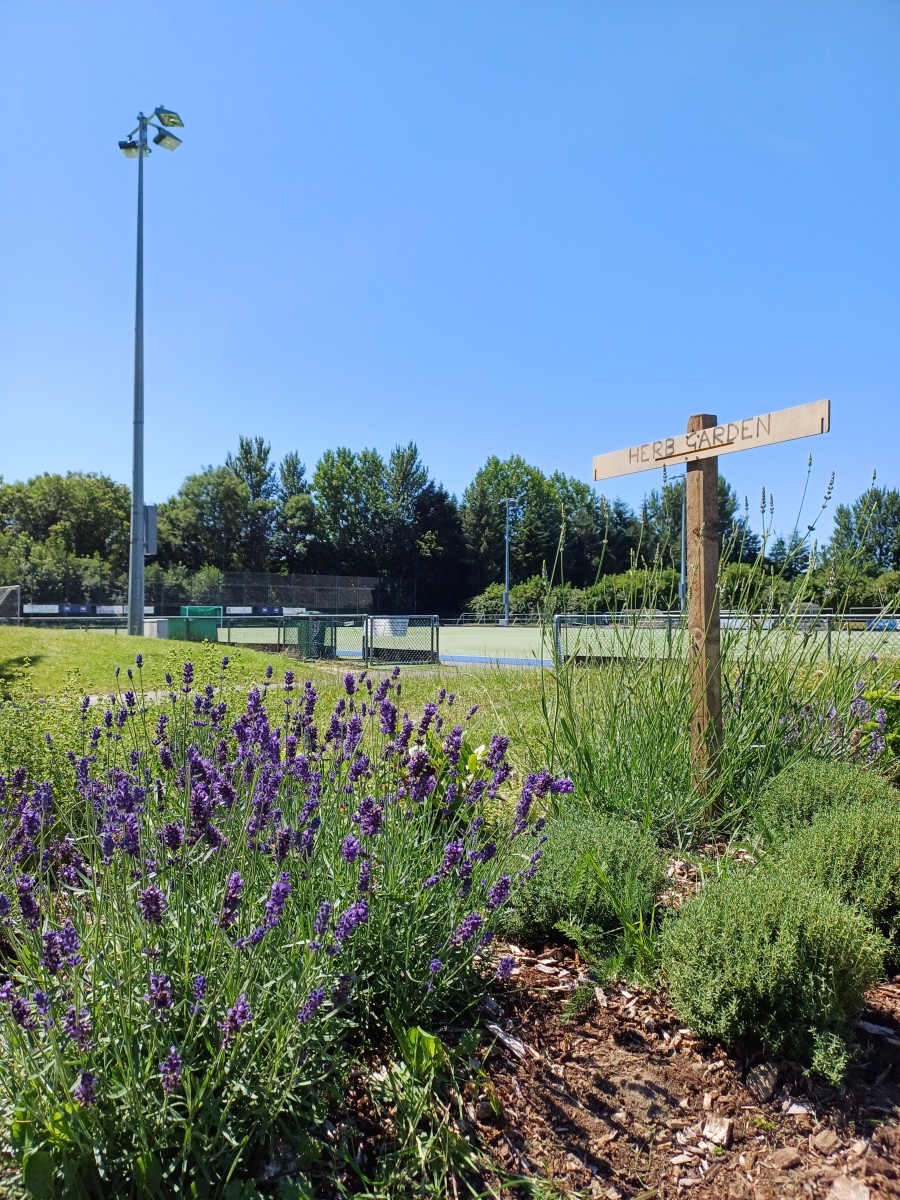
What areas of action can I focus on?
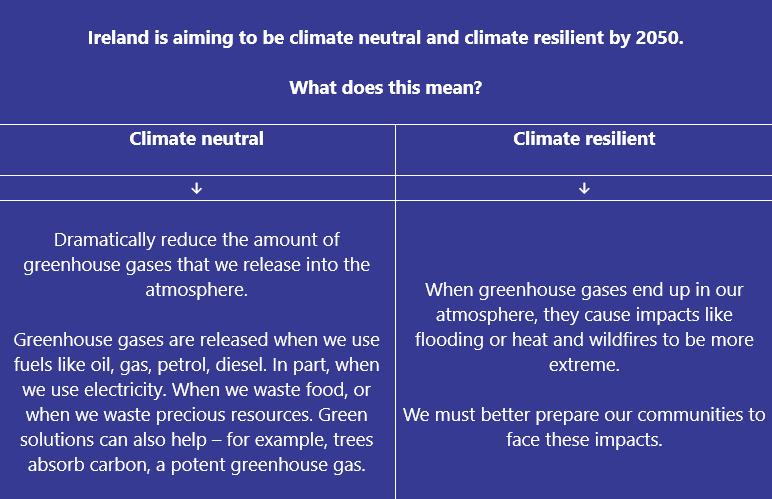
There are 5 programme themes:
- Community Energy
- Travel
- Food and Waste
- Shopping and Recycling
- Local Climate and Environmental Action
Projects must be developed to take climate action across as many of the 5 programme themes as possible.
However, applicants are not limited to selecting these project types and are encouraged to explore innovative projects that meet the objective of the Programme.
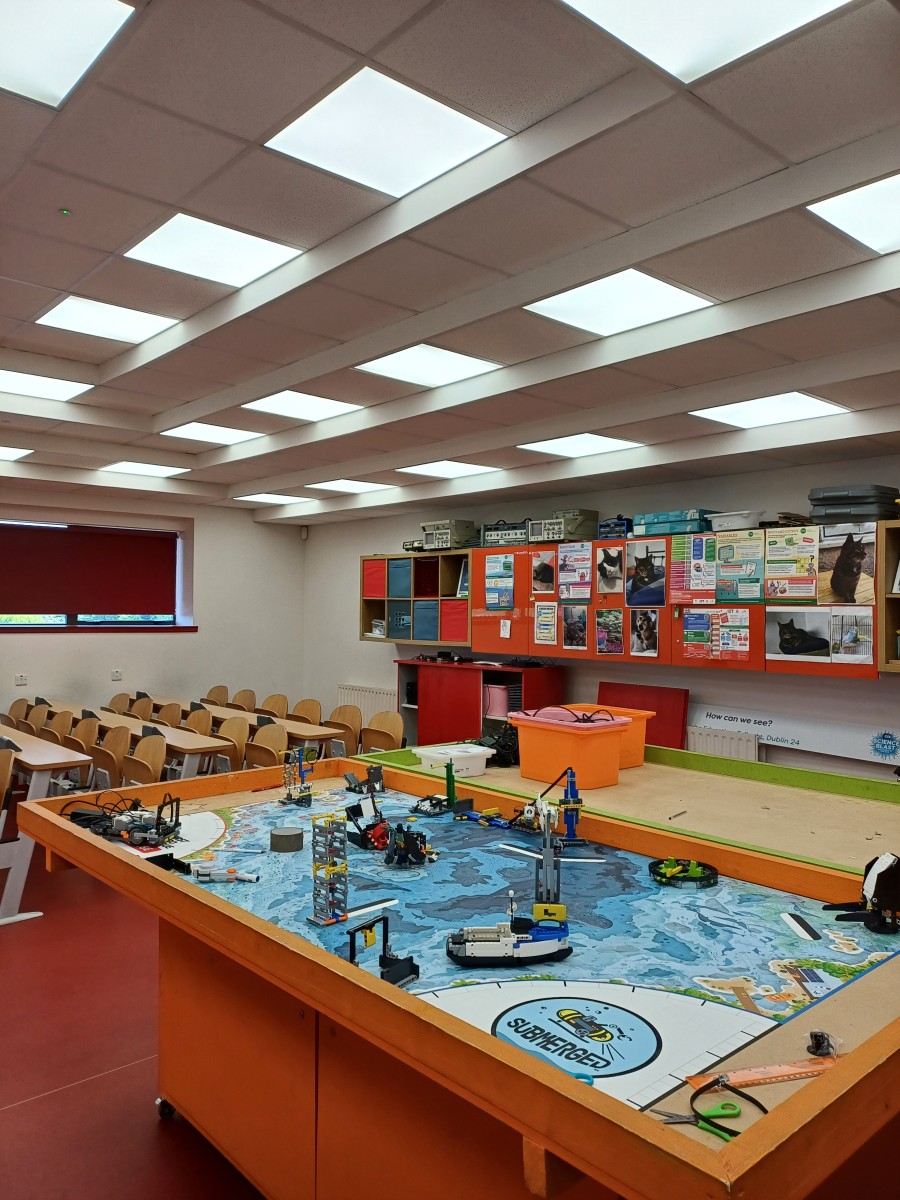
Your project can, for example, focus on any of the below:
- Reducing or supporting the reduction of greenhouse gas emissions
- Increasing the production, or use, of renewable energy
- Improving energy efficiency
- Increasing climate resilience
- Identifying nature-based projects that enhance biodiversity and seek to reduce, or increase the removal of, greenhouse gas emissions or support climate resilience in the State
- Assisting regions in the State (including communities in those regions) and within sectors of the economy impacted by the transition to a low carbon economy
- Involving potentially innovative solutions to address the above asks.
What was funded previously?
For guidance, the following were funded through phase 1.
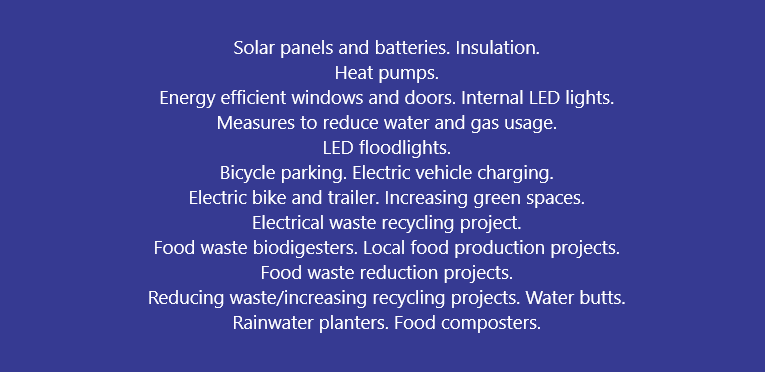
How is the funding allocated?
Small Scale Projects: 10% of the total funding allocated will be made available to fund small projects of €20,000 or below.
Medium Scale Projects: 40% of the funding will be allocated for medium sized projects valued above €20,000 and up to €50,000.
Large scale projects: 50% of the funding will be allocated for larger projects above €50,000 and up to a maximum of €100,000.
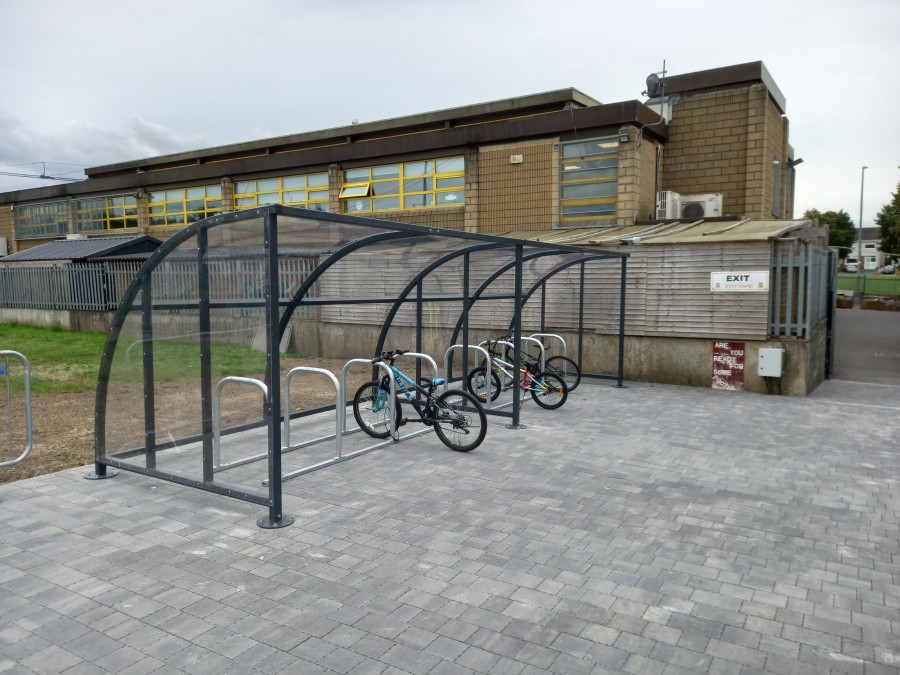
Our Privacy Policy can be found here.


